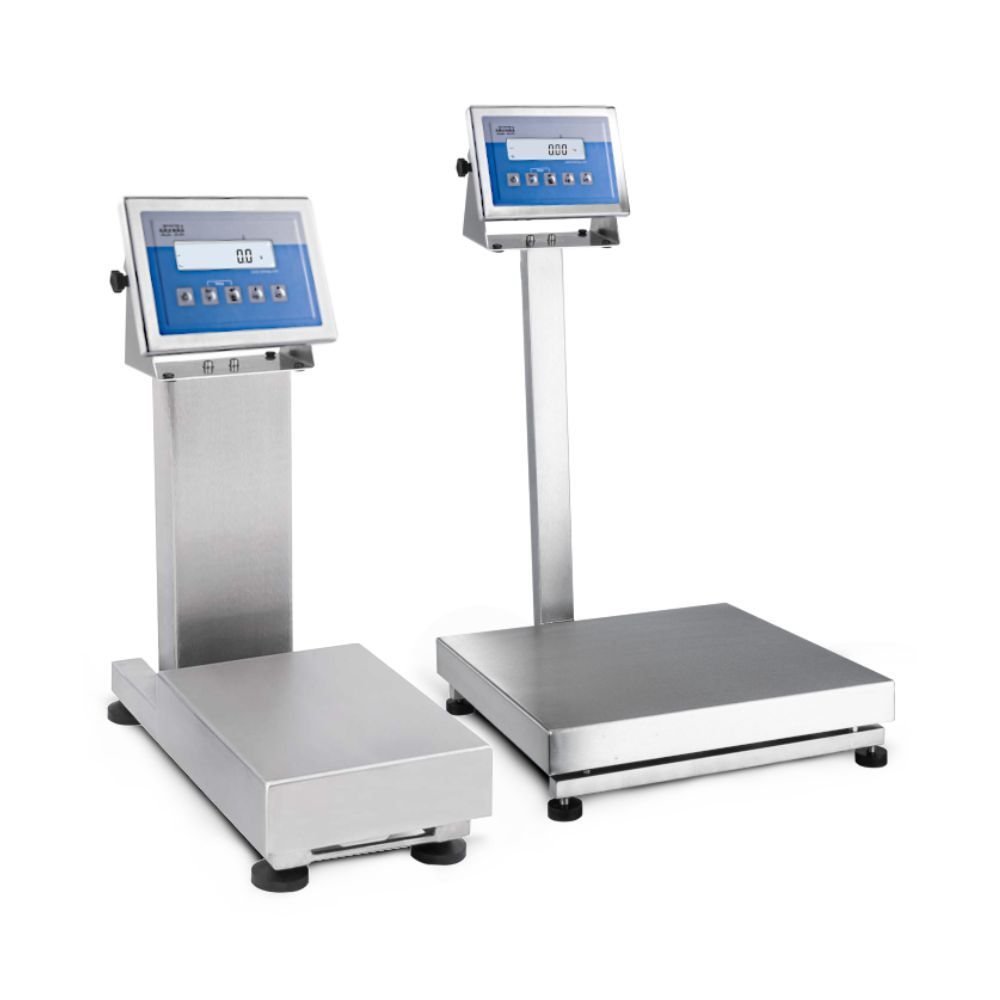The Impact of Industrial Scales on Cost Savings and Operational Efficiency
The Impact of Industrial Scales on Cost Savings and Operational Efficiency
Blog Article
Exactly How Industrial Scales Job: A Detailed Introduction for New Users
Recognizing the mechanics behind commercial ranges is important for new individuals who intend to make certain accuracy in their dimensions. These gadgets depend on lots cells and pressure scale modern technology to convert weight into a quantifiable style, but the subtleties of their procedure extend beyond plain functionality. From the numerous kinds available to the essential methods for correct usage and upkeep, each facet plays a substantial function in accomplishing trustworthy outcomes. As we discover these parts, one must think about how these aspects communicate to improve efficiency in varied commercial applications.
Basics of Industrial Scales
Industrial scales are vital tools made use of across numerous markets, consisting of manufacturing, logistics, and farming, to guarantee precise weight measurements of heavy loads. The fundamental principle behind industrial scales involves the conversion of weight right into a quantifiable form that can be displayed digitally or analogically. These scales use various devices, such as load cells or mechanical levers, to identify the weight of things positioned upon them.

Along with their measurement capabilities, commercial ranges are designed to withstand severe settings, featuring robust construction that resists dirt, dampness, and heavy impacts. Calibration and maintenance are crucial to ensure precision, as also minor inconsistencies can lead to significant economic ramifications. By recognizing the fundamentals of commercial scales, users can value their importance in various commercial applications.
Kinds Of Industrial Scales
Various types of industrial scales cater to the diverse needs of various industries, each created to handle specific evaluating tasks with precision and reliability. Amongst the most common types are flooring ranges, which are perfect for weighing heavy and large items. These ranges normally include big systems and can fit palletized products, making them important in storehouses and shipping facilities.
Another kind is bench scales, which are usually made use of for smaller products in manufacturing and retail settings. They offer accurate dimensions for products that need accuracy, such as chemicals or components in setting up lines (Industrial Scales). For mobile procedures, portable ranges supply versatility and ease of transportation, suitable for fieldwork or short-lived installments
In applications requiring high-capacity measurements, such as wholesale material handling, crane ranges and lots cells are utilized. These scales can gauge lots put on hold from a crane or other lifting apparatus, guaranteeing safety and security and precision throughout procedures. In addition, specialized ranges like checkweighers are utilized in assembly line to preserve quality assurance by making certain that products satisfy weight specs. Each sort of industrial scale plays a critical duty in improving functional effectiveness and precision across numerous fields.
How Weighing Devices Job
Evaluating mechanisms are crucial parts that make it possible for precise dimension of mass across different commercial scales. These mechanisms use different concepts of physics and engineering to provide precise weight analyses, crucial for supply monitoring, top quality control, and conformity with governing standards.
One common sort of evaluating mechanism is the tons cell, which operates on the principle Discover More of pressure determines. When a tons is used, the load cell flaws somewhat, creating an electrical signal proportional to the weight. This signal is after that exchanged a readable weight dimension by the range's electronic devices.
One more commonly utilized system is the mechanical balance, which utilizes a system of weights and levers. Industrial Scales. This technique depends on the concept of equilibrium, where the weight of the things being measured is balanced against known weights, enabling for direct measurement
In addition, hydraulic and pneumatic scales utilize liquid dynamics concepts to gauge weight. These systems utilize the stress put in by a lots to establish weight, website link offering high accuracy for enormous tons.
Correct Use Methods
When utilizing industrial ranges, adhering to appropriate use strategies is crucial for ensuring accurate measurements and preserving devices stability. Primarily, it is important to select the suitable scale for your specific application, as scales vary in capacity and precision.
Prior to considering, ensure that the range is put on a secure, degree surface devoid of resonances or disruptions. This will aid to minimize errors brought on by external factors. In addition, calibrate the range according to the manufacturer's requirements before make use of, making certain that it is functioning appropriately.
When from this source putting products on the scale, disperse the weight uniformly to avoid tipping or damaging the devices. Constantly permit the range to support prior to recording the weight, as changes might happen throughout initial positioning. For bulk materials, make use of containers that are proper for the scale size to avoid overloading.
Furthermore, prevent positioning overly hot or chilly items directly on the scale, as temperature variants can influence accuracy. Finally, keep the evaluating system cost-free and tidy of particles to avoid contamination and make sure dependable outcomes. By following these strategies, users can take full advantage of the performance and long life of their commercial scales.
Upkeep and Calibration Tips
Guaranteeing the durability and precision of industrial scales calls for persistent maintenance and normal calibration. A preventive upkeep routine is important; it ought to consist of routine assessments to identify deterioration, specifically on tons cells and other sensitive elements. Consistently cleaning the scale's surface and making sure the bordering location is without debris will certainly assist maintain its honesty and performance.
Calibration is similarly essential and ought to be executed at normal intervals or whenever the scale experiences considerable adjustments in temperature, humidity, or physical displacement. Make use of certified calibration weights that are traceable to national criteria for precision. File each calibration session carefully to track efficiency over time and recognize any type of fads or recurring issues.
Furthermore, bear in mind the range's setting. Stay clear of putting it near resources of resonance, electro-magnetic interference, or severe temperatures, as these factors can detrimentally affect dimensions. Ultimately, train all drivers on proper range use and upkeep methods to make sure constant performance and precision. By sticking to these maintenance and calibration tips, users can enhance the dependability of their commercial scales, ensuring optimal operation in any type of setup.
Final Thought

Recognizing the mechanics behind industrial ranges is important for new individuals who want to guarantee precision in their measurements.Industrial ranges are crucial tools used throughout various markets, consisting of manufacturing, logistics, and farming, to ensure precise weight dimensions of heavy lots. The basic principle behind industrial ranges involves the conversion of weight into a measurable kind that can be presented digitally or analogically. By comprehending the fundamentals of industrial scales, users can value their value in various industrial applications.
In final thought, recognizing the operation and upkeep of commercial scales is critical for making certain exact weight measurements in different applications. (Industrial Scales)
Report this page